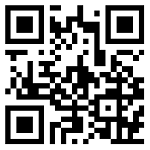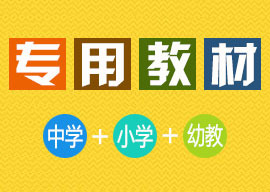提醒:点这里加小编微信(领取免费资料、获取最新资讯、解决考教师一切疑问!)
(1)some和 any 的用法:
some一般用于肯定句中,意思是“几个”、“一些”、“某个”作定语时可修饰可数名词或不可数名词。如:I have some work to do today. (今天我有些事情要做)/ They will go there some day.(他们有朝一日会去那儿)
some 用于疑问句时,表示建议、请求或希望得到肯定回答。如:Would you like some coffee with sugar?(你要加糖的咖啡吗?)
any 一般用于疑问句或否定句中,意思是“任何一些”、“任何一个”,作定语时可修饰可数或不可数名词。如:They didn’t have any friends here. (他们在这里没有朋友)/ Have you got any questions to ask?(你有问题要问吗?)
any 用于肯定句时,意思是“任何的”。Come here with any friend.(随便带什么朋友来吧。)
(2)no和none的用法:
no是形容词,只能作定语表示,意思是“没有”,修饰可数名词(单数或复数)或不可数名词。如:There is no time left. Please hurry up.(没有时间了,请快点) / They had no reading books to lend.(他们没有阅读用书可以出借)
none只能独立使用,在句子中可作主语、宾语和表语,意思是“没有一个人(或事物)”,表示复数或单数。如:None of them is/are in the classroom.(他们当中没有一个在教室里) / I have many books, but none is interesting.(我有很多的书,但没有一本是有趣的)
(3)all和both的用法:
all指三者或三者以上的人或物,用来代替或修饰可数名词;也可用来代替或修饰不可数名词。
both指两个人或物,用来代替或修饰可数名词。all和both在句子中作主语、宾语、表语、定语等。如:I know all of the four British students in their school.(他们学校里四个英国学生我全认识) / --Would you like this one or that one? –Both.(你要这个还是那个?两个都要。)
all和both既可以修饰名词(all/both+(the)+名词),也可以独立使用,采用“all/both + of the +名词(复数)”的形式,其中的of 可以省略。如:All (of) (the) boys are naughty.(是男孩都调皮)
(4)every和each用法:
every是形容词,只能作定语修饰单数名词,意思是“每一个”,表示整体概念;
each是形容词、代词,可用作主语、宾语、定语等,意思是“每个”或者“各个”,表示单个概念;each可以放在名词前,可以后跟of短语,与动词同时出现时要放在“be动词、助动词、情态动词”之后或者行为动词之前
every和each都用作单数理解,但是下文中既可以用单数的代词(如he/him/his)也可以用复数的代词(如they/them/their)替代。如:Every one of the students in his class studies very hard.(他班上每个学生学习都很用功) / They are very busy. Each of them has something to do.(他们很忙,人人都有事干)
(5)either和neither的用法:
either意思是“两个中间的任何一个”;neither是either的否定形式,意思是“两个都不”。
neither和either在句子中可作主语、宾语和定语等,都用作单数。如:I don’t care much for what to drink. Either of the two will do. (我不介意喝些什么,两个之中随便哪个都行) / --Will you go there by bus or by car? –Neither. I will go there by train.(你坐公车去还是坐轿车去?一个都不坐,我坐火车去。)
提醒:点这里加小编微信(领取免费资料、获取最新资讯、解决考教师一切疑问!)









